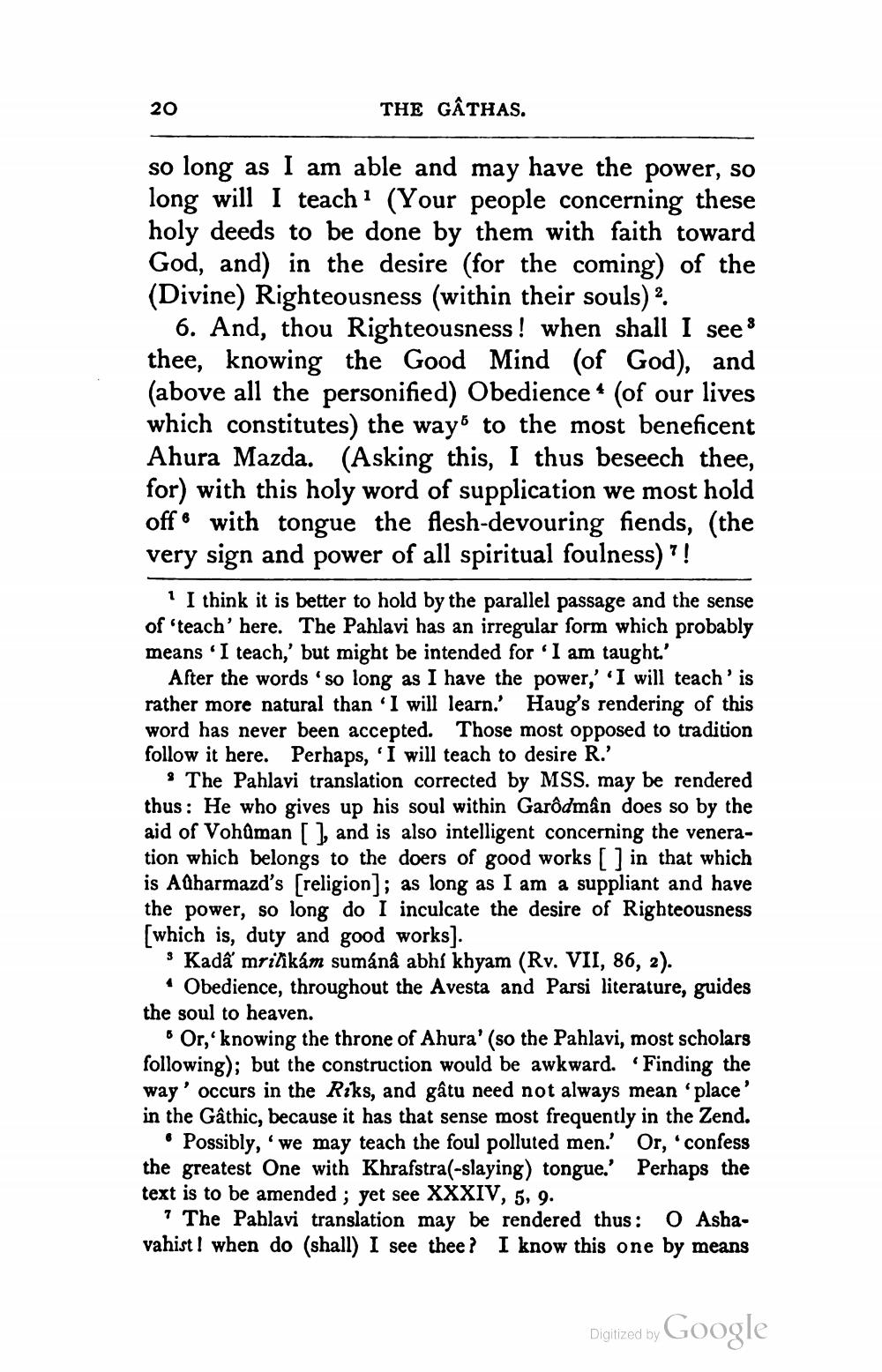________________
20
THE GÂTHAS.
so long as I am able and may have the power, so long will I teach (Your people concerning these holy deeds to be done by them with faith toward God, and) in the desire (for the coming) of the (Divine) Righteousness (within their souls) 2.
6. And, thou Righteousness! when shall I see 8 thee, knowing the Good Mind (of God), and (above all the personified) Obedience 4 (of our lives which constitutes) the way to the most beneficent Ahura Mazda. (Asking this, I thus beseech thee, for) with this holy word of supplication we most hold offe with tongue the flesh-devouring fiends, (the very sign and power of all spiritual foulness) ?!
1 I think it is better to hold by the parallel passage and the sense of 'teach' here. The Pahlavi has an irregular form which probably means I teach,' but might be intended for I am taught.'
After the words so long as I have the power,' 'I will teach 'is rather more natural than I will learn. Haug's rendering of this word has never been accepted. Those most opposed to tradition follow it here. Perhaps, 'I will teach to desire R.
The Pahlavi translation corrected by MSS. may be rendered thus: He who gives up his soul within Garôdman does so by the aid of Vohûman ( ), and is also intelligent concerning the veneration which belongs to the doers of good works [ ] in that which is Adharmazd's (religion); as long as I am a suppliant and have the power, so long do I inculcate the desire of Righteousness [which is, duty and good works].
* Kadã mrilikám sumánâ abhí khyam (Rv. VII, 86, 2).
· Obedience, throughout the Avesta and Parsi literature, guides the soul to heaven.
Or, knowing the throne of Ahura' (so the Pahlavi, most scholars following); but the construction would be awkward. Finding the way' occurs in the Riks, and gâtu need not always mean 'place' in the Gâthic, because it has that sense most frequently in the Zend.
Possibly, we may teach the foul polluted men. Or, confess the greatest One with Khrafstra(-slaying) tongue.' Perhaps the text is to be amended ; yet see XXXIV, 5, 9.
7 The Pahlavi translation may be rendered thus : 0 Ashavahist! when do (shall) I see thee? I know this one by means
Digitized by
Digitized by Google




